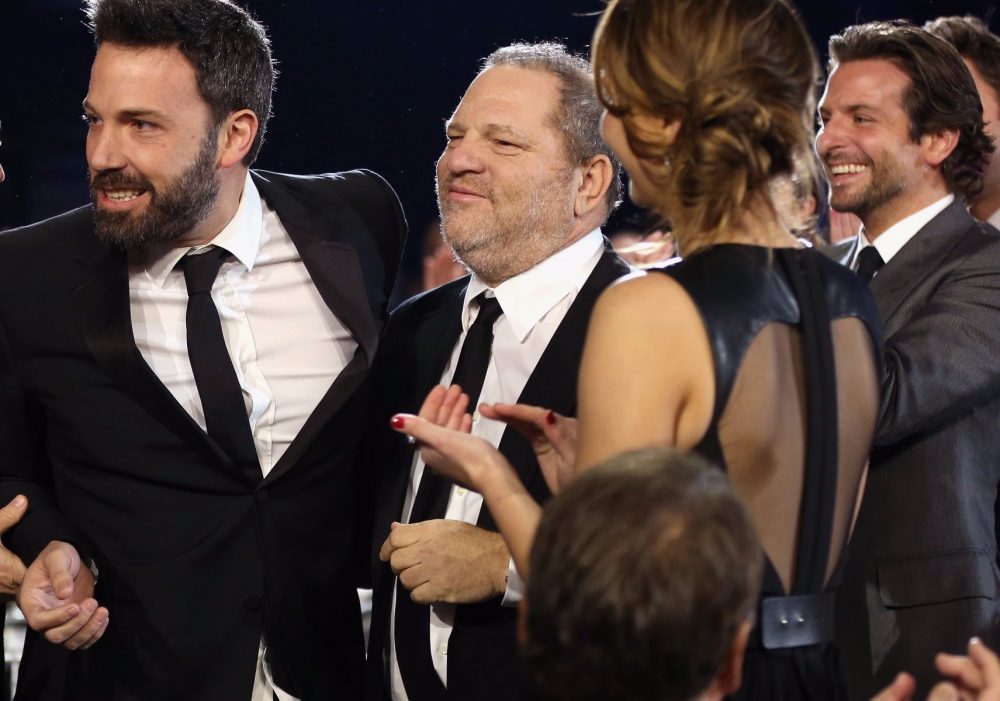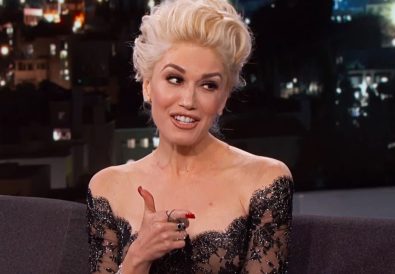Nearly a week after the New York Times wrote their expose about Harvey Weinstein, more and more women have stepped up to speak about their own experiences, while actors have issued statements of solidarity and support. Over the last few days especially, I’ve seen men offer apologies on behalf of their gender, reading through threads detailing sexual harassment, assault, and abuse at work and at school and at home, and urging their brethren to “do better.”
Which, like: terrific! Good. Please do better. That’s a great start, and a wonderful jumping off point for another, much bigger conversation: does everyone know how to do that?
Rape culture exists because we’ve never existed in a society without it. We are raised to blame and shame victims, to stigmatize, and to protect predators because it’s easier to remain the same than to stop staying in touch with them. In Hollywood, Weinstein wielded power: he could make or break careers, destroy spirits, crush and domineer and terrify. And none of this was a secret. As we hear more and more accounts from the women he affected, we’re learning that his behaviour was widely known and warned about, but more upsettingly, dismissed. Careers came before safety, and a slew of women suffered because of it.
Ironically (and finally), Weinstein’s own career seems to be over. He’s been ushered off to rehab for sex addiction, fired from his own company, and condemned from famouses he’s posed in pictures next to, with some men making sure to mention their own wives and daughters to ensure we know that they’re for real; that now that women/daughters are in their lives, they’re ready to start caring about every other one. Everyone wants to be an ally, until they don’t.
It’s tricky to dismantle something as elaborate as rape culture. It’s learned. It’s in us. It’s so prevalent that it’s more of an issue to take a stand against it than it is to make jokes about sexual assault or to comment about women’s bodies or to ask a sexual assault survivor what she was wearing and why she drank that much. We award gold stars when men step up to the Twitter plate, issuing messages of solidarity despite their own histories of hurting women while we frame them as Male Feminists a.k.a. The Ultimate Prize. The bar is so low that to say “I stand by victims” seems groundbreaking, even if those same people never stood up to Weinstein or any offender or failed to warn their fellow actors or full-on refused to work with those they knew thrived on sexual violence and abuse of power or didn’t tell their friends to shut the fuck up after someone made a sexist joke. We have gotten so used to nothing, that wannabe allies assume we’ll accept anything. That’s not true.
I know rape culture affects us all. I know it doesn’t discriminate based on gender. Over the last five days, I’ve read about the experiences from men and women who’ve been harassed, assaulted, and abused, with predators being equally invasive and horrifying. Which is conversation one: rape culture isn’t a woman’s problem, it is a problem — period. Which means that waiting until Weinstein’s empire began to fall was still too late to speak out against it, because it’s found its way into every industry, every life, every family, every friend circle. It is the myth that a victim was asking for it, and the myth of male masculinity — that a “real man” doesn’t get assaulted. It rules with fear, so it incites silence.
Which is why men like Weinstein have been allowed to rule, and why so many predators like him continue to thrive: no one wants to be a buzzkill, so they just accept rape culture as the norm. But while statements of solidarity are great for a soundbite, what are these newly-appointed allies doing to change things? What are they doing to spur conversations or to help break the cycle or to dismantle the culture our own has come to be defined by? It isn’t enough to say “I have a wife now, so I get it.” We need to know that as an ally you always got it, and so much so that you were willing not to fraternize with the enemy.
We need to know that you have always spoken up. That you didn’t laugh at the joke. That you didn’t agree to speak about women like objects, and that when you were challenged on this, you didn’t back down into defeated quiet. We need to know that you believe women, that you trust what they’ve told you, that you didn’t ask what they did to ask for it. We need to know that you didn’t work with known offenders or predators. We need to know you didn’t vouch for them or dismiss their behaviours because deep down they’re “nice guys.” We need to know that you’ve recognized your own behaviours should there be any, and that you’ve vowed to do better — that you’re questioning why you made that joke, or sent that message, or kept trying when she said no. We need you to not parade your feminism like a flag you wave as a means of social currency. We need you not to talk for us, to not treat us or our experiences with pity, and instead to acknowledge them and work with us to move forward. We need you to listen while we speak to you and while we speak at all, and not hijack the conversation because you think you understand. If you have been lucky enough to avoid being privy to the realities of rape culture your entire life, you do not understand. If you are shocked by how many women and men have stepped up to share their accounts of harassment, assault, and abuse, you do not understand. If you think that having female family members are yours to flaunt as feminist clout, you do not understand.
But this is your chance to understand. To be an ally. To help. To incite the change we desperately need. We can do this together, or we can not. The thing is, we already know what the latter looks like. And it was — at the very least — 30 years of the Weinstein dynasty. Which I’m sure we’ve only heard the start of.












